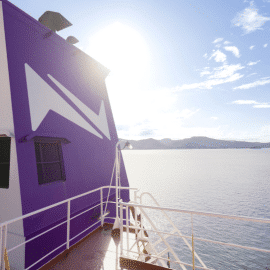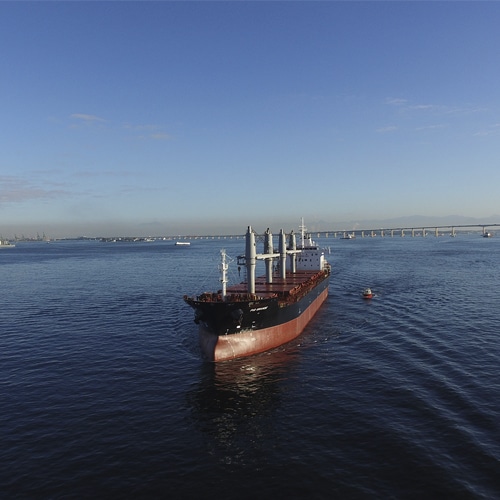
Norsul is one of the leaders in private navigation in the country, and now also operates in road and rail modes.
Norsul was present at COP26 through the call to action (Call to Action), with the aim of mobilizing society to commit to making zero-emission ships and fuels the world’s number one choice by 2030. Launched at the General Assembly of the United Nations (UN) in September, the action document with more than 160 international signatures delivered to the presidency of COP26 in the United Kingdom at the Annual Summit of the Global Maritime Forum. The initiative is from Getting To Zero Coallition, an alliance of more than 150 companies in the maritime, energy, and financial infrastructure, supported by governments and major IGOs.
“The decarbonization process is a central theme for Norsul and our customers. Our commitment is always to be at the forefront of these actions and we are investing heavily in the neutralization and research of alternative fuels and technologies. Norsul is the first 100% carbon neutral company in the world of Brazilian Cabotage, and we are proud of it. But you have to go further to reach a point where there will be no more carbon emissions to neutralize. Being in this mobilization alongside major global players in the market is another step for Norsul in favor of sustainability, based on our most important value, which is to do good for people and the world, “says Angelo Baroncini, CEO of Norsul.
Today, 80% of global trade and also of the supply chain is done by sea. Even with the lowest amount of carbon among all modes per ton of cargo transported, maritime transport is still responsible for 3% of global emissions. Partners engaged in the action point out that transport should and can completely decarbonize by 2050. But considering the economic life of a ship up to 20/22 years old, the goal is to make ships and zero emission fuels the standard choice in the market as early as 2030.
Enabling Call to Action
Some steps planned to help achieve the goal are: Investing in zero emission technologies to ensure safety, reliability and sustainability; Implementing demonstration projects on an industrial scale involving the entire value chain; Closing the competitiveness gap through policy actions; Unlocking global growth opportunities and synergies with other sectors more difficult to eliminate. In order to achieve the goal of mobilization, governments and regulators need to work side by side with the private sector to assist with clear deadlines and regulations.
“For our part, we are dedicated to making the goal designated by Call To Action in favor of decarbonization in maritime freight a reality. More and more we are taking bigger steps towards sustainability and it is clear that we are on the right track, “says Baroncini. Norsul won the Bronze Seal of the Brazilian GHG Protocol Program in the 2021 cycle, the first year of participation. Developed by FGV, the program calculates estimates of greenhouse gas (GHG) emissions. The action reinforces the commitment of participating companies to sustainability and motivating the search for means to reduce emissions.
Norsul and the environment
The company has other initiatives in addition to the Neutral Carbon Norsul Program, through which it neutralizes 100% of carbon emissions through carbon credits generated from conservation activities in the Brazilian Amazon Forest. An example of this is the special paint plane, which uses Actiguard technology, an antifouling paint manufactured by melting the active silicone hydrogel with a small percentage of biocide. With it, the ship’s hull offers less friction and, consequently, less resistance to advancement. This increases energy efficiency and decreases fossil fuel consumption. This initiative is a pioneer in Brazil within commercial navigation and reduces the energy consumption of vessels.
“We will continue with these investments, which will continue to happen in line with technological development inside and outside our market,” concludes Angelo.

